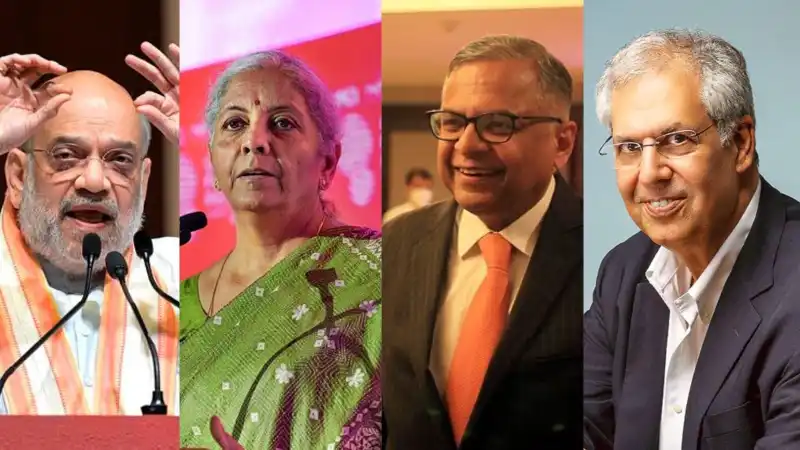Top executives of the Tata Group, including Tata Trusts Chairman Noel Tata and Tata Sons Chairman N. Chandrasekaran, met Union Home Minister Amit Shah and Finance Minister Nirmala Sitharaman on October 7, 2025. The meeting came amid internal disputes among Tata Trusts trustees over board appointments and governance, which could affect the functioning of the $180 billion conglomerate.

Government Meeting on Key Issues
Noel Tata and Chandrasekaran, joined by Tata Trusts Vice-Chairman Venu Srinivasan and trustee Darius Khambata, arrived together at the Home Minister’s residence, where Finance Minister Sitharaman also joined. The discussions reportedly centered on resolving disagreements within the Trusts that hold a 66% stake in Tata Sons, the promoter and holding company of the Tata Group.
Background of the Infighting
Tata Trusts is said to be divided into two factions. One supports Noel Tata, who became chairman after Ratan Tata’s passing, while the other, led by Mehli Mistry, has connections to the extended Shapoorji Pallonji family, which owns 18.37% of Tata Sons. Sources indicate that Mistry feels excluded from key decisions, particularly regarding board appointments at Tata Sons, which oversees the 156-year-old conglomerate spanning around 400 companies, including 30 listed firms.
Stakes and Implications
The infighting has raised concerns about control and governance of one of India’s most valuable business groups. According to sources, the government faces questions about whether an individual could exert undue influence over such a significant economic entity.
Tata Trusts, Tata Sons, and Venu Srinivasan declined to comment, and Mehli Mistry did not respond to calls or messages.
Economic Significance
With Tata Group’s extensive reach across multiple industries, the internal disagreements at the trust level are being closely watched for their potential impact on corporate governance, business operations, and India’s economy.
